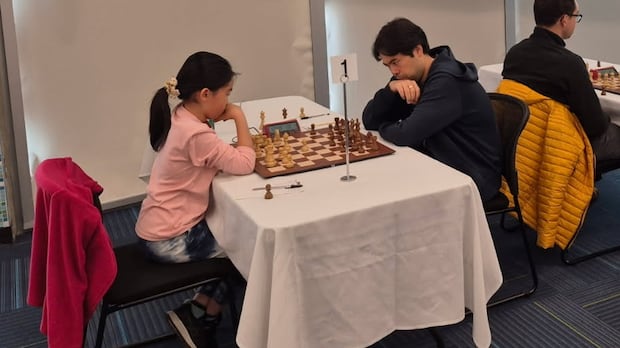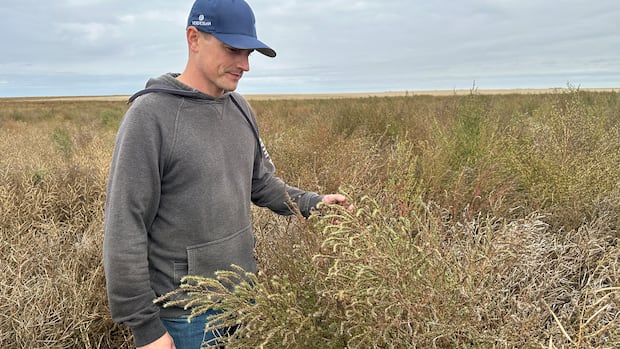Katie Maracle’s nightmare has now come true.
Her husband Murray Maracle is from Tyendinaga Mohawk Territory near Belleville, Ont., and their only child, eight-year-old Ethan Maracle, is autistic, non-verbal and has epilepsy. He’s used the Jordan’s Principle initiative to access therapy and education since 2018-19.
Jordan’s Principle exists to ensure First Nations youth can access essential health and social services without delay or disruption, with jurisdictional questions over which government should pay to be worked out later.
But that’s exactly what Katie Maracle feels is happening: a disruption due to jurisdictional squabbling.
She said the family was shocked to learn on May 9 that the federal government “had a timeline” for their money. The deadline had passed, meaning $60,000 in funding they thought they had, had expired.
“It’s been a family in crisis mode,” said Maracle, a teacher by trade who works for a local non-profit organization, in a recent interview from her home in Orillia, Ont., a small city north of Toronto.
Without money for therapy, cut off from services and nervously preparing to send their son with complex needs to public school for the first time in September, the Maracles are grappling with a life turned upside down by Indigenous Services Canada (ISC).
“That’s his education, and his right to an education was suddenly kind of stripped from our hands,” said Maracle, who also spoke to CBC Indigenous about her fears in March.
The family is one among thousands caught up in sweeping changes Ottawa introduced earlier this year, amid a backlog of 140,000 unprocessed Jordan’s Principle requests. Those changes meant some services were being scaled back, while Canada would no longer guarantee a previously approved request would be approved again.
Katie Maracle said the abrupt loss of services has been challenging and harmful.
“Try and explain that to somebody who’s eight years old, non-speaking: no more teachers, no more friends. No, just stopped,” she said.
“At first, he thought it was great being at home with mom and dad full time. He’s like, ‘This is fantastic.’ But it’s starting to show, and how he shows his discontent, sadness and frustration is through behaviour regression.”
Canada’s approach ‘unduly narrow,’ says lawyer
The Federal Court has recently rapped Canada’s knuckles twice in rapid succession for denying Jordan’s Principle applications by “taking an unduly narrow approach,” said lawyer David Taylor.
“There’s a whole raft of cases, I suspect, that are affected by this narrow interpretation,” said Taylor, a partner at Conway Baxter Wilson in Ottawa, in an interview.
Taylor has argued extensively about Jordan’s Principle at the Canadian Human Rights Tribunal and in court, and two of his clients recently won urgent court challenges, which he said sends a clear message that Canada needs “a serious rethink” of the path it’s on.
In the case of Joanne Powless, Canada denied a Jordan’s Principle application for money to fix a mould-contaminated home, arguing no such government service is available to the general public.
In the other case, Patrick Cully sought full-time applied behavioural analysis therapy for his daughter, Scarlet, who is autistic. ISC said it “was not aware of an existing government service” that funds such therapy.
But judges called Canada’s decisions untenable, unreasonable and contrary to the orders of the Canadian Human Rights Tribunal, which require Ottawa to assess each child’s unique needs, not apply blanket policies.
“It’s just kind of compounding layers of a discriminatory approach,” said Taylor.
“And that’s something that hopefully the Cully and Powless decisions are going to start trying to unwind.”
Hope for a new minister
Katie Maracle is hopeful about the implications of the Cully case given the similarities to hers, and hopeful about a new cabinet minister at ISC.
Asked for a message for the Maracle family, Indigenous Services Minister Mandy Gull-Masty reiterated in a statement that funding for school-related requests will only be approved under certain circumstances under the new rules.
“We have adjusted our services to ensure that we adequately address the urgency of requests,” the statement reads in part.

Ethan Maracle, however, is still without a decision on his current funding request, despite it being labelled urgent, and without services he’s had most of his life: transportation, intensive clinical therapy and one-on-one educational assistance at a privately run centre for neurodiverse children.
Amanda Baysarowich, the founder and clinical director of IBI Behavioural Services and Unique Minds Academy in Barrie, Ont., said she used to have 17 children funded by Jordan’s Principle. Now she has none.
“We had no idea that this new arbitrary decision was being implemented,” she said, referring to the end date that saw Ethan’s funding pulled.
Baysarowich said the transition can create more harm, damage and trauma for kids who lose services. However, she said she’s still owed about $265,000 from Jordan’s Principle overall, describing the situation as financially ruinous, stressful and unsustainable.
“That is debt that we absolutely will not recover unless parents are willing to pay it,” she said.
“Again, my heart hurts because the families that thought they were approved for these services ultimately shouldn’t be held responsible.”







